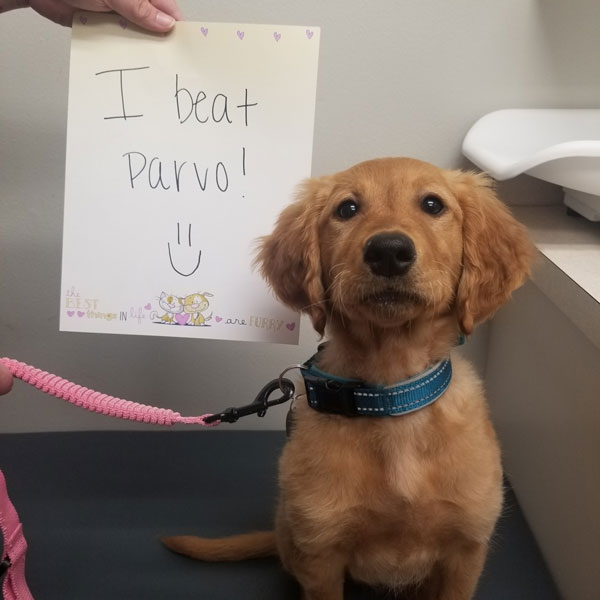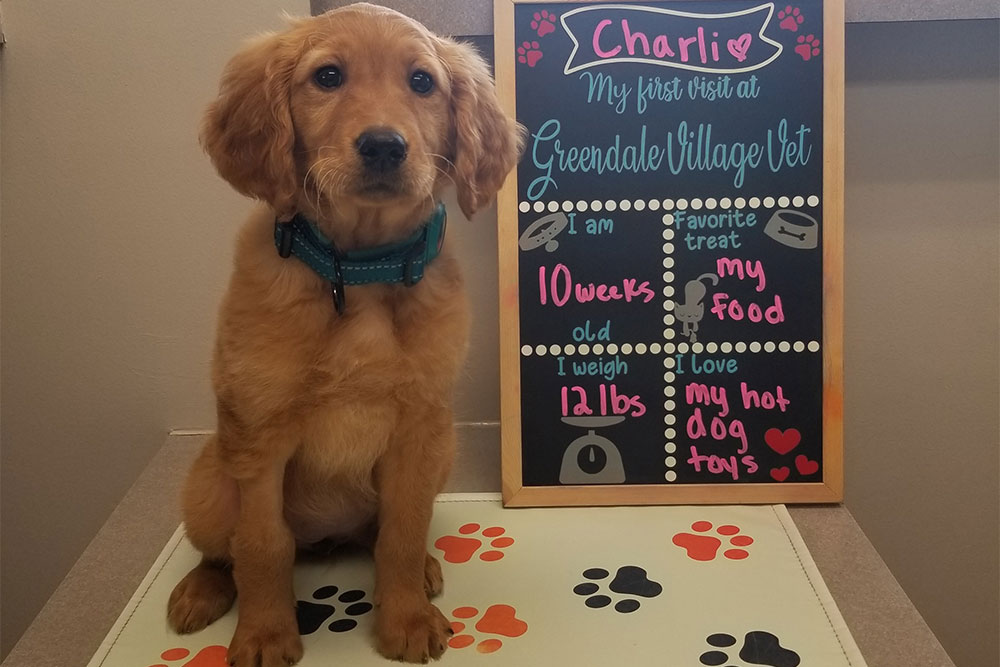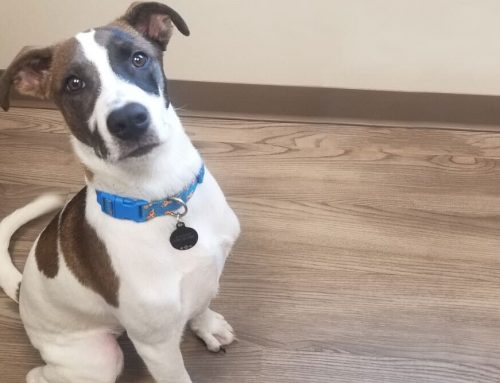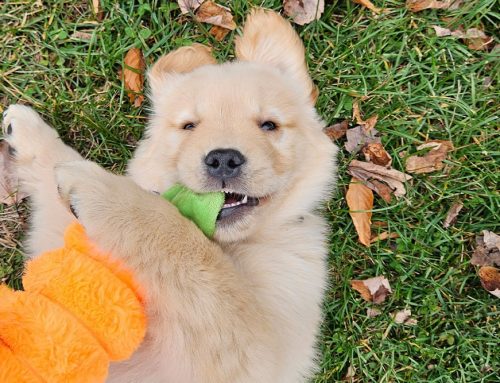Charli is a normal, happy, crazy puppy, and her owner is very happy to report she is into everything. Why is getting into mischief a good thing? Because when Charli first came to her family, she was lethargic, didn’t eat well and developed diarrhea just a few days after coming home. Unfortunately, Charli was infected with parvovirus.
While this virus isn’t very common in our area, Dr. Michelle McDonough recently treated two puppies for parvovirus within a couple of weeks. “Before that, I hadn’t seen a case for 10 years,” said McDonough. “That makes me wonder if we’re about to see an increase in southeastern Wisconsin. Within the last couple of years or so, there have been quite a few cases seen in Michigan.”
Whether there is an uptick in the disease in Wisconsin is unclear, said Dr. Keith Poulsen, director of the Wisconsin Veterinary Diagnostic Laboratory. “Testing goes through private labs, and they aren’t required to report.” However, he said, within the last six months, his lab has noticed a potentially new strain that appears to have come from Michigan. There were some infections from a dog show in upper Michigan that seemed to have come from lower Michigan. “We thought we’d start seeing more of that strain, but so far we really haven’t,” he said.

Parvo is complicated, McDonough said. It is extremely contagious, and a pup might be incubating the virus for up to a week before any symptoms appear, so that delays treatment. “The virus attacks the gastrointestinal tract, so the puppy will have severe diarrhea and vomiting,” said McDonough. “Both of those symptoms can lead to severe dehydration, causing the pup to go into shock.”
Treatment is very involved, said McDonough, but there are ways to reduce a puppy’s susceptibility to getting sick in the first place. “One of the reasons parvovirus is so powerful is because it can survive indoors or outdoors for months. It can actually survive up to years if it is in a dark, moist location,” said McDonough. “It does not require dog-to-dog contact to pass along. It can survive on anything an infected dog has touched. That even includes people’s clothing and shoes.”
That is why we never recommend taking a puppy under 16 weeks of age to dog parks, pet stores or anywhere else where there is a large number of dogs with unknown health status. Adult dogs are also susceptible to parvo, but even if they don’t get sick they can carry and transmit the virus.
“That’s why it is so very, very important for dogs to have all their vaccinations,” she said. “The vaccinations help more than just the pet getting the vaccine.” There is also a vaccination protocol that can help boost puppies’ immune systems. Pet owners can choose a vaccination schedule in which pups get a vaccine every three weeks until they are 16 weeks old. After that, the veterinarian might suggest a final boost at 20 weeks.
Fortunately for Charli, the owners brought her to Greendale Village Vet as soon as they noticed symptoms, and she was treated with fluids, hospitalization and supportive care. She recovered and now is proud to say “I beat parvo!”
For more information or to make an appointment, visit https://greendalevillagevet.com/ or call 414-421-1800.








Leave A Comment